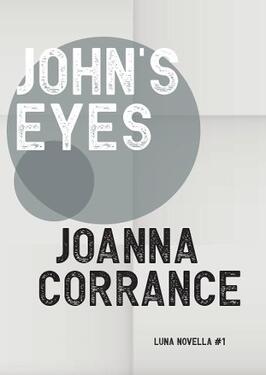In an age of wearable and smart technology John’s Eyes (2021), a novella by Joanna Corrance, imagines a near future where eyes can be wholly replaced with artificial versions. This isn’t the retinal implant of today, but a new tech that bonds with its wearer and learns on the hoof. Indeed, whatever AI is programmed into these eyes acts as the narrator.
John, blind for several years, receives these eyes, and much of the story is based around how the nascent technology learns to cater for its host. Their seeming sentience interprets and learns from John’s needs and desires, making adjustments to how he views the world, adapting light and colour, like Instagram filters, to affect mood or iron out flaws.
Handing autonomy to technology, though, is not without its risks as the eyes, innocent of human mores and protective of John; effectively mollycoddle him. The actions taken, though he doesn’t realise it, affect his relationships, with family, friends, and his partner.
For its brief length (under eighty pages) the book packs its ideas in, reflecting on how tech imperceptibly affects our lives; on facing down depression; and how assumptions of what makes people happy can have the opposite effect. While the eyes believe they are one with their host, they fail to see the gulf between humans living by instinct and machines by process.
While this understanding gap could be a comedy of errors – the eyes’ naive perception of humans, admittedly repetitive and unsubtle here – there’s a satisfying darkness to the conclusion that supposes, with AI in the future, that the optics don’t look good.
